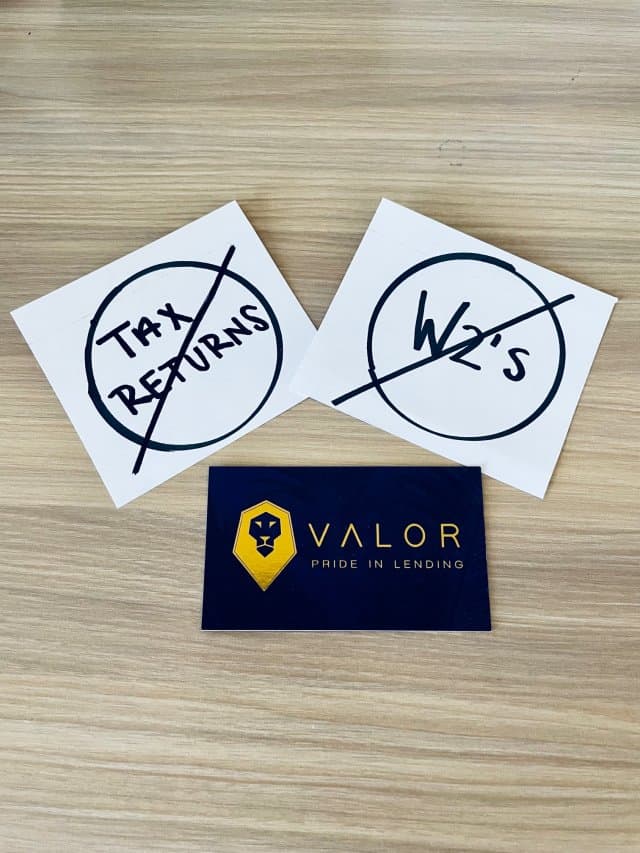Would you like to uncover our Great New Valor Non-Qualifying Loans? Non-Qualifying Loans are beneficial for self-employed borrowers and real estate investors, and we’ve got you covered!

Valor Lending Group can help you with one of our Great New Non-Qualifying Loans TODAY!
Valor Lending has helped thousands of Californians and Arizona homeowners, also, real estate investors nationwide. There is no question too big or too small that we won’t be able to help you with. We pride ourselves on our top-notch communication skills to tackle any situation that comes our way. Reach out to me today, and will get back to you ASAP with advice you can trust.
Call or Email Me Today!

GREAT NEW VALOR NON-QUALIFYING LOANS ARE AVAILABLE FOR YOU NOW!
CALL or EMAIL. I am standing by for your call to answer any of your questions.
Here are Examples of What Non-Qualifying Mortgage (“Non-QM”) Loans are and how they can work for you!
Non-Qualifying Mortgages (“Non-QM Loans”) have different underwriting guidelines than a typical conventional or government-backed loan. Non-Qualifying loans provide self-employed borrowers and real estate investors with an alternative income qualification method. Qualified Mortgages are prohibited from having “risky” loan features such as interest-only payments, negative amortization, balloon payments, terms beyond 30 years, or excessive points and fees. Thus, anything with one of these features would be a non-QM loan. Significantly, non-QM loans for owner-occupied properties (i.e., primary residence, second and vacation homes, etc.) must still follow Dodd-Frank’s Ability-to-Repay (ATR) Rule. You can acquire financing for conforming loans using tax returns and financing for non-conforming loans through alternative methods.

(a) Bank Statement Loans
Bank statement loans have become the best Arizona and California home loan option for self-employed borrowers to purchase or refinance a home loan. Bank statement loans are for self-employed and other non-salaried persons who make sufficient income to support a mortgage payment but whose tax returns don’t accurately reflect this.
Traditional mortgage lenders require tax returns, W-2s, and paycheck stubs to determine monthly income. For salaried and hourly borrowers, the lenders look at gross income for qualifying purposes. But for self-employed borrowers, traditional mortgage lenders look at net income, the adjusted gross income shown on tax returns. This puts self-employed borrowers at a disadvantage.
With bank statement loans, lenders still want to ensure borrowers can repay their mortgages, they just use bank statements to verify income as opposed to tax returns. Self-employed borrowers can document their ability to repay based on business deposits into their personal or business bank accounts, i.e., their true cash flow.
This is an incredible and expanding area of mortgages that levels the playing field for self-employed borrowers, providing the opportunity to qualify without tax returns.
Advantages And Disadvantages of Bank Statement Loans
1) Pros of Bank Statement Loans
- No tax returns are required
- Allows self-employed individuals and 1099 contractors to qualify
- Qualify even if the business is showing a loss
- Comply with Dodd-Frank and receive all appropriate borrower protections
2) Cons of Bank Statement Loans

- Must be in business for at least 2 years, showing a steady flow of deposits
- Not available to salaried borrowers (although non-self-employed co-borrowers are allowed)
- Rates are slightly higher than traditional mortgages (but not more)
- None of the government programs (such as FHA, VA, or USDA) apply
Bank Statement Loans | Highlights:
- 12 and 24 months Bank Statement options available (1 to 2-year 1099 only)
- Credit scores starting at 620
- Up to 90% LTV (on Purchases & R/T Refinances)
- Borrower and Lender paid points available
- Must have 2 years of verifiable self-employment income (must own at least 50% of the business)
- No Tax Returns
- Loans up to $7.5MM
- Purchase and cash-out or rate-term refinance
- 4 years seasoning for foreclosure, short sale, bankruptcy or deed-in-lieu
- Owner-occupied, 2nd homes, and non-owner occupied
What you would need for submission:
- 12-24 Months of Bank Statements (business or personal)
- Copy of Business License (3 years)
- CPA Letter (stating you are 100% owner, you have been in business for 2 years and they have done your taxes for two years | Also list your current expense ratio and the CPA License Number)
- Purchase Contract (for purchase)
- Current Mortgage Statement (for refinance)
- Hazard Insurance Dec Page or New Quote for purchase
- Driver’s License (front and back)
(b) Asset Depletion Loans
Like bank statement loans, a borrower’s ability to repay must be documented with asset depletion loans. However, the ability to repay is calculated based on a borrower’s net worth and liquid assets, not monthly or yearly income.
If a person has very strong assets but limited income, then an asset depletion loan would be a good fit for them. Instead of looking to annual income to demonstrate an ability to repay, asset depletion lenders will look at a borrower’s total liquid assets and divide them by 60-72 months. If this amount is sufficient to cover the monthly mortgage payment (and all other debts), a borrower can get qualified for the loan.
(c) No-Tax-Return Investment Property Loans
No-tax-return investment property loans are the best Arizona and California home loan option for real estate investors, which allows qualification based entirely on the cash flow of the property being financed. If the rental property is cash flow positive, that will constitute sufficient qualifying income.
Because these loans are for investment properties only (non-owner occupied), lenders are not required to document a borrower’s ability to repay. However, lenders still want to ensure their loan will be repaid, and they do this by looking at the income of the property and not the borrower.
Sometimes called “landlord loans” or “rental loans,” no-tax-return investment property loans do not consider a borrower’s income in the traditional sense. Instead, the cash flow of the property is the income factor.
Whereas traditional mortgage lending requires tax returns during the loan approval process, no-tax-return investment property loans do not. With these loans, real estate investors can purchase or refinance a property with no employment required, no personal income considered, and no debt-to-income ratio developed.
Choosing The Right Home Loan For You
Choosing the best home loan option is critical for your particular situation.
The primary question is how best to demonstrate your ability to repay the loan. On owner-occupied, 1-4 unit residential properties, the ability to repay is based on a borrower’s income. The income of a salary and hourly employee is determined by reviewing tax returns, W-2s, and 30-day pay stubs.
Self-employed income can be verified using bank statements and profit & loss statements.
Current liquid assets to make payments over 60-72 months determine a high-net-worth individual’s ability to repay. To learn more about qualifying for non-owner occupied properties, check out no-tax return investment property loans, hard money loans, and commercial property loans.
Contact your local mortgage broker to discuss the options available.
WE ARE NON-QM LOAN SPECIALISTS!
TRUST US WITH YOUR LOAN SCENARIO TODAY!





